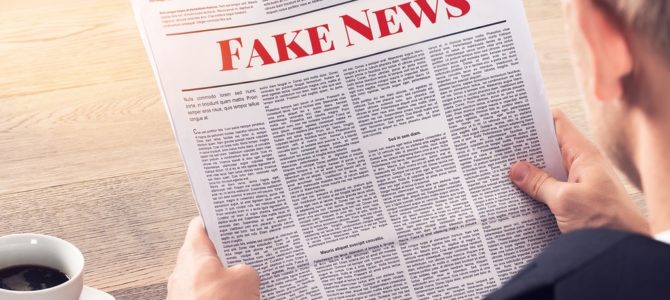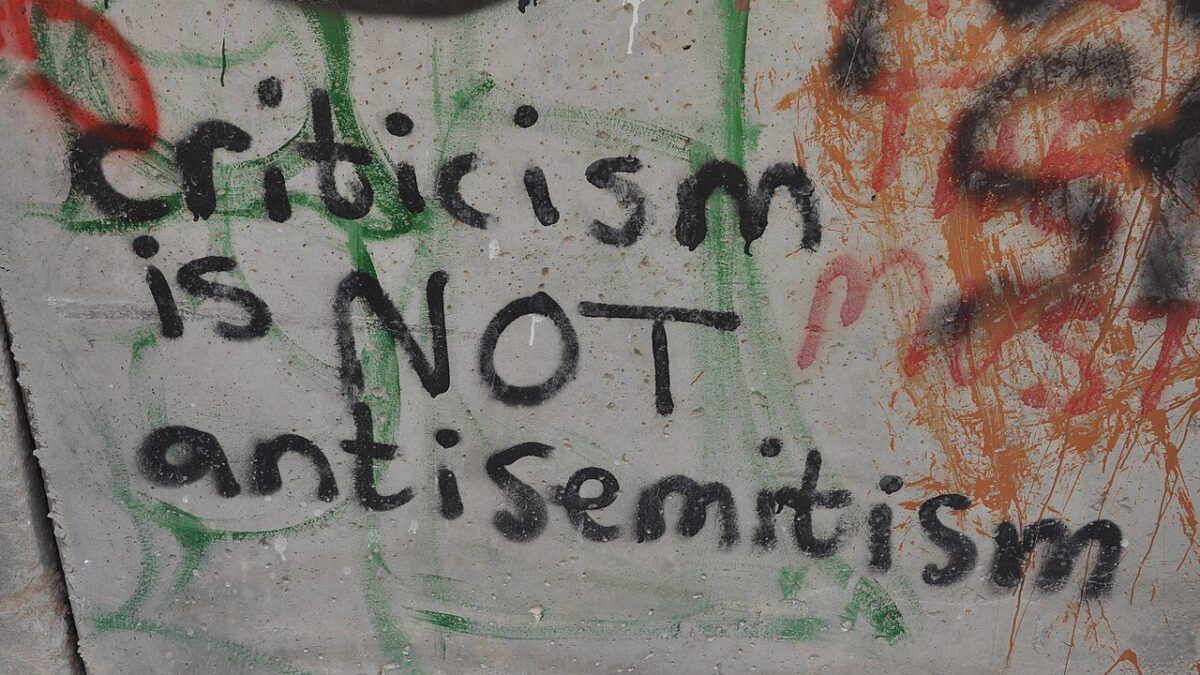
A group called the Committee to Protect Journalists just named Donald Trump, our very own president of these United States, as the winner of its award for Overall Achievement in Undermining Global Press Freedom. This makes a mockery of the CPJ’s supposed mission of protecting the freedom of the press.
That naming Trump a top “Press Oppressor” is absurd can be gleaned by reading any newspaper, turning on a television, or poking around for two minutes on the Internet, where you will see the president routinely analyzed, fact-checked, criticized, and abused in the most vile personal terms with wild abandon. Heck, I just happened to flip through the comics section of a local newspaper left lying around at a coffee shop—I haven’t subscribed to a newspaper in years—and at least three of the strips took undisguised jabs at Trump.
Anyone who is even vaguely familiar with the state of press freedom around the world knows these activities, in many other countries, would get you a long stretch in prison without trial, or a sudden, mysterious, and permanent disappearance. But here we can do it with a sense of total impunity.
If you actually check out the CPJ’s report, it turns out that they know this, too. Their awards for top press oppressors begin by describing how “Over the course of 2016, the Turkish judicial system handled 46,193 cases of ‘insulting the president'”—that’s authoritarian Turkish President Recep Tayyip Erdogan—”or ‘insulting the Turkish nation, the Republic of Turkey, the parliament, the government, or the institutions of the judiciary.'” Next to that, it describes Trump as the second-most thin-skinned world leader because “Since declaring his presidential candidacy in 2015, Trump has posted about 1,000 tweets critical of the press.”
One of these things is not like the others. That’s a pattern that repeats throughout the document. Erdogan is cited again for using anti-terrorism laws as a pretext to jail journalists, as is Egyptian strongman Abdel Fattah el-Sisi. It describes how “China is consistently one of the world’s worst jailers of the press” and how “independent media has been all but eradicated” in Russia under Vladimir Putin. It describes how “journalists continue to be imprisoned” in Myanmar despite the regime’s rapprochement with famous dissident Aung San Suu Kyi.
Then, after all of that, it gives its award for Overall Achievement in Undermining Global Press Freedom to Trump. For what? It says that Trump has “undermine[d] domestic news outlets,” but if you follow the link associated with that phrase, it begins with a story about the United States denying a visa to a Canadian journalist in late 2016—while Obama was president.
Most of the linked article is devoted to complaining that Trump met with the leaders of Turkey, China, Egypt, and the Philippines, despite their bad records on press freedom. Of course, so has every other president, so the CPJ falls back on complaining that Trump didn’t raise the issue of freedom of the press with these foreign leaders. That concerns me, too, but it seems far from substantive evidence of “undermining” a free press, much less domestically.
I agree that Trump has certain authoritarian instincts and assumptions. Fortunately, we have a political system in which the power of the president is counteracted by other institutions, so his ability to act as an authoritarian ruler turns out to be extremely limited. Hence the blessed freedom we still enjoy.
So what gives with the hysteria making out President Trump as a menace to freedom? Well, you might notice that the one complaint the Committee to Protect Journalists keeps harping on is Trump’s use of the epithet “fake news.” In fact, they admit that this was the main motivation for giving the award.
Amid the public discourse of fake news and President Trump’s announcement via Twitter about his planned ‘fake news’ awards ceremony, CPJ is recognizing world leaders who have gone out of their way to attack the press and undermine the norms that support freedom of the media.
Part of their argument is simply guilt by association: “President Trump’s oft-tweeted ‘fake news’ epithet, for example, has already been adopted by repressive governments such as China, Syria, and Russia.” Surely, there is a big difference between grumbling “fake news” and locking up journalists, but that is precisely the difference they are trying to break down. “CPJ research shows that when public figures and political leaders lob insults at the media, they encourage self-censorship and expose journalists to unnecessary risk.”
Oh, come on. Lobbing insults at the media is as American as apple pie. It’s a favorite national pastime, right there after baseball. And it’s definitely bipartisan.
This is a pretty weak complaint. Even worse, they hope we’ve forgotten who first adopted the term “fake news.” The phrase came into popular use after the 2016 election, when “fake news” was set up as the scapegoat for why Hillary Clinton lost. At the time, it was used in an attempt to shake down new social media giants like Facebook and restore the old mainstream media as ideological gatekeepers.
As I put it at the time, “this push to suppress ‘fake news’ is motivated by a desire to suppress undesirable political outcomes.” We can already see the first fruits of this campaign: Google slapping bogus, arbitrary “fact check” warnings on websites whose ideology it doesn’t like. Talk about undermining the norms that support press freedom. Yet somehow it was only when Trump managed to turn the “fake news” epithet back against the mainstream media that it suddenly became dangerous.
We can guess why the CPJ decided to pin this award on Trump when there are so many real threats to freedom of the press in the world. They were looking for a way to get a lot of coverage and press attention by tapping into partisan hatred for Trump. Perhaps they were hoping that their readers would then also pay attention to the misdeeds of Erdogan and Xi and all the rest. But the actual impact will be the opposite.
By making Trump’s ineffectual bluster on Twitter seem like an even bigger threat to freedom of the press than Erdogan’s mania for locking up journalists, or Putin’s death grip on Russian media, or China’s suffocating control on every form of communication, they actually trivialize and minimize dictatorship. Speaking of which, notice that they don’t even mention the very recent behavior by the theocratic regime in Iran, which has shut down foreign news services, blocked off the Internet, and is imprisoning and murdering dissidents. But I guess they can’t pay too much attention to that if they have to pretend that Trump saying mean things to reporters is the greatest threat to freedom in the entire world.
From the beginning of the Trump phenomenon, I have worried that Trump’s personal hostility or indifference toward established rules and norms will break down the cultural resources we rely on to maintain a free and prosperous society. What I underestimated is how partisan hatred for Trump would lead his opponents to break down those same cultural norms, convincing themselves that it is acceptable to throw out all rules and standards because Trump is an unprecedented threat that requires extreme measures.
Here we can see that in action. A watchdog for press freedom has allowed itself to be so corrupted by partisan hatred that it undermines its own mission and betrays the journalists it claims to protect.









